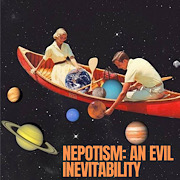(Thread IKs:
dead gay comedy forums)
|
'progress' and 'evolution' are kind of loaded terms (as is 'development' tbh), i try to avoid using them
|
|
|
|
|

|
| # ? May 29, 2024 13:17 |
|
Atrocious Joe posted:is that foreign worker thing related to something like the H1-B visa It is pretty much an H1-B but for Canada. I know all about the issues with temporary foreign workers. But I don't think my union does (more like cares), maybe if they did they would show some solidarity with other skilled sectors, but lol if they showed solidarity with unskilled sectors. Further, it's also about immigration. My trade (skilled industrial) requires a certification that can only rewarded if you're a permanent resident , making it impossible to enter the trade without working in another sector first, or another route for status ( family etc.). That might change. Foreigners can work directly in the industry with their foreign certificates. That doesn't bode well with the union either. The funny thing is, is that they're right. We get paid a shitload of money due to a restricted labor supply. Introducing an international Labour pool that typically gets paid single digit percentage points would absolutely depress wages. How do you confront that? Like seriously? Where is the win-win situation that doesn't feed into chauvinism while also maintaining good wages. "We restrict our Labour pool to domestic workers only, but un-racistly". ( I guess the possibility exists where political action gains control over the Labour market forcing companies to hire foreign workers at prevailing wages, but lol you might as well just go for socialism at that point).
|
|
|
|
gradenko_2000 posted:Andreas Malm had this to say about the topic: Intuitively, a primitive, semi-feudal or feudal society would be far better off not industrializing at gunpoint of the capitalist, thrown into the grinder of the sweatshop for half a century, and get all their resources pillaged. Developing their productive forces autonomously or with the assistance of socialist societies sounds (obviously) a lot better. Maybe I'm just being paternalistic here, but I don't think a bangledish farmer getting urbanised, building a factory in the city, slaving in the sweatshop, watching the factory drown in rising sea levels, going back to their decrepit old farm, dying of heat exposure and famine, is in anyway progressive.
|
|
|
|
if we end up destroying the world as a place to live for societies it’s kind of moot and ultimately worse than anything ever
|
|
|
|
"progress" in this context is historical progress, which is not necessarily a societal improvementKindest Forums User posted:I guess the possibility exists where political action gains control over the Labour market forcing companies to hire foreign workers at prevailing wages, but lol you might as well just go for socialism at that point not dissing you here, just to be clear. but that's exactly the point, you do a socialism to solve the thing. it's not "might as well just go", it's a construction effort I am quoting this here because this is demonstrative to the problem you are working on: when faced with historical forces, with progress in that sense, those societies which did not have the means of production/societal organization to resist capitalism got crushed. This is a small part of the "why" of socialist efforts of industrialization and development of capital forces were so dramatic; either you did the thing through socialism or capital had its way. Either unions act in a militant position or capital gets them by forcing them to entrench into small privilege, which breaks them anyway in the long run.
|
|
|
|
dead gay comedy forums posted:"progress" in this context is historical progress, which is not necessarily a societal improvement that's also how I read it, but I think exmarx is right "progressive" has acquired positive connotations. the neutrally loaded sense of "historically/mechanically followed from" is basically archaic.
|
|
|
|
I think a valid criticism of Hudson is him making a distinction between early/late capitalism because it clearly makes the implication that "progressive" is synonymous with "good", if only in the terms of the workers in the metropol specifically. I don't think this is a useful statement to make: late capitalism is good for finance-sector workers in the metropol. Who cares? We're already slicing the working class into pieces we can feel good or bad about already if we're talking about inside/outside the metropol. I think a better position is that capitalism is progressive, full stop, in being a step towards and necessary precondition of, communism. You can't skip capitalism because it is necessary to establish the economic dynamics that result in the formation of a working class. I think this is true of even China or the USSR, if you want to argue that both countries went from a state of (essentially) serfdom into a communist revolution, but in both of those cases it's clear that external capitalism precipitated those revolutions.
|
|
|
|
I also don't think it's a big deal and that you have to "throw him in the trash" because he's got a confused take. This isn't handed down from on high, it's up to you to keep your head on a swivel and consciously use the good parts to refine your own analyses and discarding the bad when you find it. Treating other writers and thinkers like either oracles or dumbass liars is some lib poo poo.
|
|
|
|
Kindest Forums User posted:It is pretty much an H1-B but for Canada. I know all about the issues with temporary foreign workers. But I don't think my union does (more like cares), maybe if they did they would show some solidarity with other skilled sectors, but lol if they showed solidarity with unskilled sectors. pragmatically, ease residency requirements. won't do anything to help the rest of the world, but it would nonracistly protect national wage levels
|
|
|
|
Pentecoastal Elites posted:I think a better position is that capitalism is progressive, full stop, in being a step towards and necessary precondition of, communism. You can't skip capitalism because it is necessary to establish the economic dynamics that result in the formation of a working class. I think this is true of even China or the USSR, if you want to argue that both countries went from a state of (essentially) serfdom into a communist revolution, but in both of those cases it's clear that external capitalism precipitated those revolutions. I had actually assumed this is what was meant in general when Marxists say capitalism is progressive. As in it literally progresses society and its relations into more complex forms necessary for communism. Though, you do have to admit that the vast selection of commodities is pretty loving impressive under capitalism. Too bad about all the other stuff.
|
|
|
|
The Voice of Labor posted:the shift from feudalsim to capitalism was more of a schism than an evolution. the commodifiction of labor shifts the productive class from controlling the means of production and having their labor tithed to a lord to controlling their labor and having no controll over the means of production.
|
|
|
|
cancers are progressive too
|
|
|
|
https://twitter.com/wclasscoffee/status/1541758563948838912
|
|
|
|
Kindest Forums User posted:I was listening to Michael Hudson's interview on Ben Norton's podcast and I had an issue with his analysis of the historical development of capitalism. He keeps on referring to the initial/middle stages of capitalism (industrial capitalism he calls it, the precursor of financial capitalism) as "progressive" ( his descriptor, not mine). This was due to states and corporations increasing welfare through wages and social spending. He's correct, partly, that the material conditions of Metropole workers improved during that time ( and continued through financial capitalism for that matter, which I don't think he mentions). However, these conditions were only improved due to the super exploitation of surplus value in the periphery. Describing Capitalism as "progressive," even "revolutionary," that's Marx. Capitalism being superior to Feudalism being superior to Slavery - is that not basic Marxism? Marx's view was that Capitalism would develop into Socialism. Hudson's view is that the Financial branch of Capitalism is a dead end - it will not develop into Socialism, but rather Fascism, war, and ecocide, but Industrial Capitalism can. Hudson is fighting an older enemy, compound interest, which of course predates Capitalism. In his view, we have gone backwards and the world has manifested itself contrary to the expectations of the classical economists. The classical economists viewed what Hudson calls Industrial Capitalism (MCM production) as a force that would confront and destroy the rentier class: landowners, usurers, monopolists. To make a nation wealthy, it has to have a productive base, not a financial one - otherwise you end up like Spain. The classical economists favored policies like land taxation to limit the power of the rentier classes and ensure that money was lent for productive purposes and not merely for interest. They did not anticipate that the banks would simply go into the landowning business. Henry George was also wrong on this - he thought banks were counter to landlords - not that the banks would become the landlords, which of course they want to be because MM is the easiest way to make money in the short term. The global financial system making all of this possible is the focus of much of his work. So what you say about Surplus Value in the periphery, that's not something Hudson celebrates. To fight the tendency of Financialization, Hudson favors a strong State that participates in the market, owns natural monopolies, and controls the money supply. We, the United States and the West, are on a dead end track. The best bet for the future involves breaking dollar dominance and ending Empire. That process is already in motion. The more the US squeezes Russia. China, Iran, etc. the more we push them together to create alternatives to US-controlled finance, payments, and all the rest. Europe is falling on its sword. I suppose a question here is whether or not Industrial Capitalism is even capable to developing into Socialism and not Imperialism. Does this view contradict Lenin's Imperialism? It's also counter to Arrighi's cycles of Capitalist development. In his view, you have Florence, Netherlands, England, and the United States as the four great Capitalist centers. Each one started with production, MCM, until they reached a crisis where domestic MCM was no longer profitable (crisis one - 1970s), switching to MM on an international scale until their luck runs out (crisis two, or terminal crisis - 2008), they make the wrong bets and a new MCM player (like China) makes the right bets, usually with the willing or unwilling assistance of the previous champion. In this view, China looks like the next Capitalist center and it remains to be seen what they will do with it. Fat-Lip-Sum-41.mp3 has issued a correction as of 15:34 on Jun 28, 2022 |
|
|
|
the hats were alright
|
|
|
|
started reading fossil capital after someone posted all the screenshots of it, I’m only a couple of pages into it but it’s already great
|
|
|
|
Fat-Lip-Sum-41.mp3 posted:Describing Capitalism as "progressive," even "revolutionary," that's Marx. Capitalism being superior to Feudalism being superior to Slavery - is that not basic Marxism? no.
|
|
|
|
Star posted:started reading fossil capital after someone posted all the screenshots of it, I’m only a couple of pages into it but it’s already great  more and more people are reading!!! more and more people are reading!!! 
|
|
|
|

|
|
|
|
Kindest Forums User posted:Or did he not forgot and is a social fascist and believes imperialism is good as long as it increases the condition of your native workers, and his critique of financial imperialism only exists because it diverts less and less surplus value from the periphery to the Metropole workers. From the intro of the 2nd edition of his book "Super Imperialism":
|
|
|
|
My impression is that it's fair to say he's been taking seriously the question of how the US exploits the third world since before many of us were even born.
|
|
|
|
https://twitter.com/GabrielRockhill/status/1541458038011355141?s=20&t=tp7Lb6oS0YG75C-1NtikSw
|
|
|
|
oh word
|
|
|
|
Atrocious Joe posted:Mike Davis is apparently very ill https://twitter.com/sp0ka/status/1540849309431648258  I forgot he went on TrueAnon. This is a beautiful quote from him, and I hope he pulls through.
|
|
|
|
MLSM posted:https://twitter.com/GabrielRockhill/status/1541458038011355141?s=20&t=tp7Lb6oS0YG75C-1NtikSw quote:“Fascism and Communism Are the Same” there's like nothing new under the sun lol
|
|
|
|
Fat-Lip-Sum-41.mp3 posted:In this view, China looks like the next Capitalist center and it remains to be seen what they will do with it.
|
|
|
|
Capitalists are jailed in our system regularly when they gently caress up and mess with other capitalists. I have no knowledge of the relative strengths of the pure socialists verse capitalists masquerading within their society composition of the Chinese Communist party however, so I will simply sit here in the middle of the imperial core and enjoy my treats and hope for the best for them
|
|
|
|
i think someone else pointed it out here, but one reason why the capitalist restoration argument seems to defy logic is that this somehow happened under everyone's noses, without the communist party being violently overthrown (like what happened in eastern europe and the USSR), without the return of the KMT, without privatization of the land, the banking system, and the industrial core of the economy, etc. etc. etc.
|
|
|
|
BrutalistMcDonalds posted:i think someone else pointed it out here, but one reason why the capitalist restoration argument seems to defy logic is that this somehow happened under everyone's noses, without the communist party being violently overthrown (like what happened in eastern europe and the USSR), without the return of the KMT, without privatization of the land, the banking system, and the industrial core of the economy, etc. etc. etc. yeah it doesn't make sense - even if we grant that Deng experimented with shock doctrine and liberalization, he was also capable of putting a stop to it, and indeed part of the background behind Tiananmen was suppressing the liberal students who wanted to RE-implement shock doctrine after the party had already backed away from it once before
|
|
|
|
https://twitter.com/revdefeat/status/1542654603027615744 shocked that amnesty is in service of american imperialism
|
|
|
|
Harold Fjord posted:Capitalists are jailed in our system regularly when they gently caress up and mess with other capitalists.
|
|
|
|
Danann posted:https://twitter.com/revdefeat/status/1542654603027615744 Amnesty International wants to kill all refugees? Not surprised tbh
|
|
|
|
MSDOS KAPITAL posted:Capitalist dictatorships don't execute capitalists when they gently caress up. China will supplant the West - it's capitalist realism to take that fact and infer that they must therefore be capitalist. If you're the biggest participant in Capitalism, if you have the power to control the machinations of international Capital through that participation, you're the Capitalist hegemon. The CCP will have seized control. Seizing control is the goal, isn't it?
|
|
|
|
Fat-Lip-Sum-41.mp3 posted:If you're the biggest participant in Capitalism, if you have the power to control the machinations of international Capital through that participation, you're the Capitalist hegemon. The CCP will have seized control. I think there is a fundamental difference between the CPC having a controlling interest in 60% of the Chinese economy, and lords of capital poo poo in the West. Namely, that the CPC is acting to remove the profit incentive from those industries while capitalists are exploiting those monopolies to wring as much out of the rest of the economy as they can with them. It's an important distinction, isn't it? Like sure they are socializing production and using profit incentives to do that, and building up productive capital, but once profit incentive becomes totally dysfunctional (i.e. at the point of monopoly, or some time before) they cut that poo poo out. A system run by capitalists wouldn't do that because the interest of the capitalist is to use that monopoly position to enrich themselves. So the Chinese system has capitalist elements and there are capitalists in China, but the Chinese system is not capital-C Capitalist because capitalists aren't in control of the state. So the reasoning goes, anyway - you can argue that they are secretly capitalist or whatever but pointing to the existence of state-run enterprises in support of that argument is Like the whole point of the turn to socialism, as I understand it, is to appropriate those monopolies and use the advanced productive capacity of them for the benefit of all. That is, to remove the profit incentive from them. Not to break them up or whatever - that's what liberal regimes sometimes do to keep the gravy train rolling a little longer. So the existence of state-controlled monopolies isn't evidence of capitalist elements - precisely the opposite, in fact.
|
|
|
|
mawarannahr posted:if we end up destroying the world as a place to live for societies it’s kind of moot and ultimately worse than anything ever The end of humanity is the end of evil.
|
|
|
|
https://twitter.com/criticofpolecon/status/1542681786291048454 Isn't the answer to this just Gorbachev? Or is it much more complicated?
|
|
|
|
AnimeIsTrash posted:https://twitter.com/criticofpolecon/status/1542681786291048454 gorbachev yeah. the union was in decline preceding him but the brezhnev stagnation wasn't a fatal wound. what was a fatal wound was that fat loving dumb piece of poo poo not understanding a goddamn thing about how the soviet union worked. for example he destroyed the soviet financial system that underpinned the economy because he did not understand why two types of "currencies" existed for accounting purposes. vladislav zubok's collapse is actually a decent summary of gorbachev's sheer incompetence in the face of stagnation and rising nationalism. e: alas if andropov had lived Raskolnikov38 has issued a correction as of 20:12 on Jul 2, 2022 |
|
|
|
MSDOS KAPITAL posted:Like the whole point of the turn to socialism, as I understand it, is to appropriate those monopolies and use the advanced productive capacity of them for the benefit of all. That is, to remove the profit incentive from them. Not to break them up or whatever - that's what liberal regimes sometimes do to keep the gravy train rolling a little longer. So the existence of state-controlled monopolies isn't evidence of capitalist elements - precisely the opposite, in fact. But neither is nationalisation evidence of socialism. Any ideology will nationalise an industry under the right circumstances, only socialism will socialise production. That's an unfortunately woolly phrase but it has to be specifically argued - operating an industry, particularly key ones, at long term operational cost with an aim of maximising efficiency of production in the private capitalist parts of the economy is a systemic approach to maximising surplus value as you get rid of rentier share of the profit and so the only capitalists you have left have to exist in fields where they are creating value and deliberately focus infrastructure development to make labour reproduction costs as low as possible and other costs like transport cheap so surplus value gets larger and larger. You can make things really rather good for the workers but they are still working class. Crudely I feel the argument needs to be that means of production are being created and steps being implemented to move away from the law of value from what they are making rather than capital accumulated and incomes rising or else you're not seeing socialism being built.
|
|
|
|
Raskolnikov38 posted:gorbachev yeah. the union was in decline preceding him but the brezhnev stagnation wasn't a fatal wound. what was a fatal wound was that fat loving dumb piece of poo poo not understanding a goddamn thing about how the soviet union worked. for example he destroyed the soviet financial system that underpinned the economy because he did not understand why two types of "currencies" existed for accounting purposes. vladislav zubok's collapse is actually a decent summary of gorbachev's sheer incompetence in the face of stagnation and rising nationalism. Gorbachev was wholly product of soviet education system and communist party. He didn't appear from nothing. He was a true leninist if there ever was one.
|
|
|
|

|
| # ? May 29, 2024 13:17 |
|
what killed the soviet union is imo partially being stuck as a less effective imperialist power and also elite defection the soviets could never squeeze their (poorer than the west) clients to the degree that the US could, and their ruling class had shittier lives than their western counterparts and knew it. this is not a stable configuration.
|
|
|



































